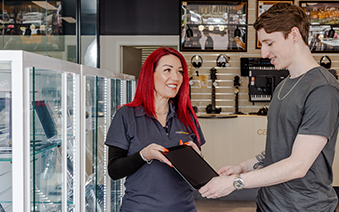
Category: Selling your stuff
We’re all guilty of having a bit too much stashed away in our cupboards.

Category: Buying Second-Hand
Find out how the circular economy affects us and where Australia sits on the journey to creating a better world.

Category: Buying Second-Hand
Environmental terms can be confusing. Are concepts like the circular economy and green economy aligned?

Category: Family matters
Pets are part of the family but for the new owner, the cost of owning a cat or a dog in Australia can come with some unexpected costs. What should you expect?

Category: Handy at home
There's no time like the present to declutter and reorganise your home. With some help, your pre-loved goods could soon be loved by someone else.

Category: Handy at home
Being a ‘Conscious Consumer’ and living green have become buzzwords. But what does ‘be green’ mean when you're out shopping?
We pay cash on the spot for items of value that you no longer use like a guitar, computer, jewellery, smart phones, tool sets and more.
Simply bring an item of value to leave with us as collateral for a secured, short-term loan.
You can apply to access up to $10,000 and request a redraw from an approved credit limit.